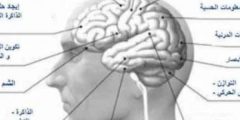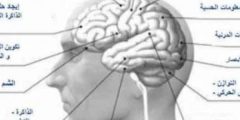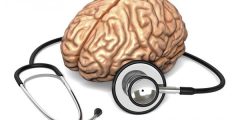Focus and attention skills
The skills of the ability to concentrate and maintain attention begin to appear in a person at an early age, and these abilities and skills help people succeed in their lives, but there are many reasons and circumstances that may cause an imbalance in their development and weakening, and it is worth noting that the emergence of some memory problems and weakness Thinking skills may occur naturally as a result of aging, and on the other hand, memory weakness may result from causes other than aging that can be treated. Therefore, it is recommended to visit a doctor to find out the underlying cause of memory weakness and determine the optimal treatment.
Reasons for lack of focus
There are many reasons that justify suffering from a lack of concentration, and identifying the factor causing this problem is an important part of the solution, and below we explain some of these reasons:
- Stressors: Constant exposure to stress leads to high blood pressure, weakens the immune system, and may also cause depression and mental stress, which leads to difficulty thinking and concentrating.
- Lack of sleep: It is recommended to sleep for between 8-9 hours a day in a good manner. Sleeping for a few hours or sleeping in an unhealthy way can affect the brain’s working mechanism and cause a lack of concentration and difficulty thinking.
- Hormonal changes: Estrogen and progesterone levels increase during pregnancy, and this may affect memory and cause short-term cognitive impairment. Also, a decrease in estrogen levels during menopause can cause forgetfulness and difficulty concentrating.
- Diet: The diet that a person follows plays an important role in suffering from a lack of concentration. For example, vitamin B12 supports the correct functioning of the brain, and its deficiency causes a lack of concentration. It is also possible for a lack of concentration to occur after eating some foods that cause allergies in some people, such as peanuts. In this case, this group of people is advised to avoid their allergens.
- pharmaceutical: Lack of concentration may be a side effect resulting from the use of some medications. If one of these symptoms appears, the patient should inform the doctor immediately to take appropriate action. As it is possible to reduce the dose of the medication or replace it and prescribe another medication, it is worth noting that lack of concentration may occur after taking chemotherapy as a side effect.
- Some medical conditions: Some medical conditions associated with inflammation and changes in blood sugar levels may cause a lack of concentration. Concentration and attention may also decrease in cases of anemia, migraines, and chronic fatigue syndrome. Chronic fatigue syndrome, which is characterized by a feeling of general fatigue for more than six months.
Read also:What are the symptoms of brain atrophy?
Treatment of lack of concentration
There are many simple ways and techniques that help increase concentration and increase the amount of information stored in memory. Among these methods we mention the following:
- Attention and vigilance: It is worth clarifying that retaining any information requires paying attention, and it can only be remembered when paying full attention and presence of mind when receiving this information, and that taking sufficient amounts of sleep and food, and staying away from distractions such as: radio and television sounds helps to achieve this.
- Use as many senses as possible: For example, it is possible to remember larger amounts of information that people receive in lectures if they listen to the lecture and write notes at the same time. Likewise, it is possible to remember a larger amount of what was read from a book or magazine if the written material is read aloud.
- Linking new information to previous information: It has been found that it is easier to memorize new information if it is linked in context. For example, if a new medicine is prescribed for use, it is easier to memorize and remember its side effects by associating it with a previously used medicine from the same family of medicines, and thus it will produce similar side effects.
- Information structuring: This is done by arranging and dividing the information. For example, the phone number is saved by dividing the number into sections, the first five digits, then the three digits in the middle, then the last three digits, and so on.
- Using the art of mnemonic: What is meant by this is that the information is linked to visual images, and linked to sentences, their abbreviations, and the rhymes that end with them.
- Understanding the information: A person must understand and comprehend complex information before trying to memorize it as it is without understanding it. It is recommended to write a summary of the material and arrange it in a way and style that suits him to make it easier for him to memorize it.
- Review information: It is recommended to review the information after understanding and memorizing it on the same day or the next day after getting enough sleep. It is also necessary to review it later at regular intervals until you feel comfortable and confident that you can know it well.
- Mind training: Activating the brain through mental exercises and challenges, such as: developing a new hobby, reading a novel, learning a foreign language, or having fun with crossword puzzles, helps create connections in the brain, which makes the brain more resistant to the occurrence of memory disorders and memory-related diseases such as: Alzheimer's disease.
- Follow a healthy lifestyle: This is done by eating healthy food, following a balanced diet, exercising regularly, and avoiding smoking. This is because following a healthy lifestyle increases the amount of blood and oxygen flowing to the brain, and also reduces the risk of diseases that can affect memory, such as: Alzheimer’s disease, stroke, and diabetes. It should be noted that exercising Exercise leads to an increase in the level of endorphins in the body, which makes a person feel comfortable and improves his mood, and reduces the incidence of depression, which reduces attention and impairs concentration, which is considered a risk factor for developing Alzheimer's disease in the future.
- Get enough sleep: Sleep is very important for improving memory and feeling refreshed, which increases concentration and attention.
- Doctor's review: This is to treat any problem that may be the reason behind this lack of concentration.









